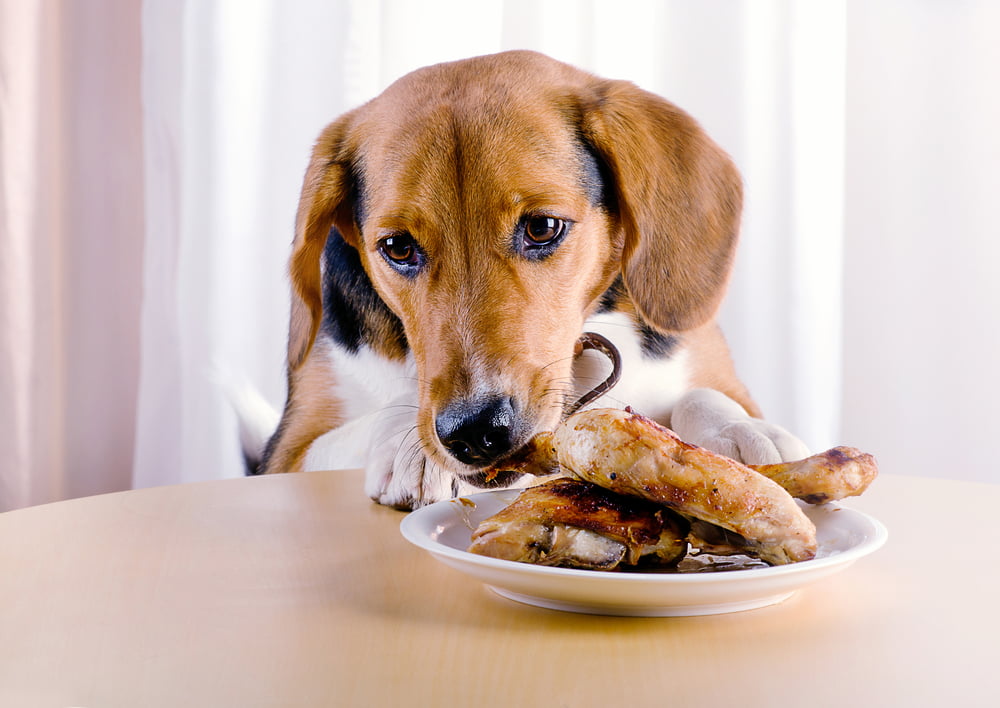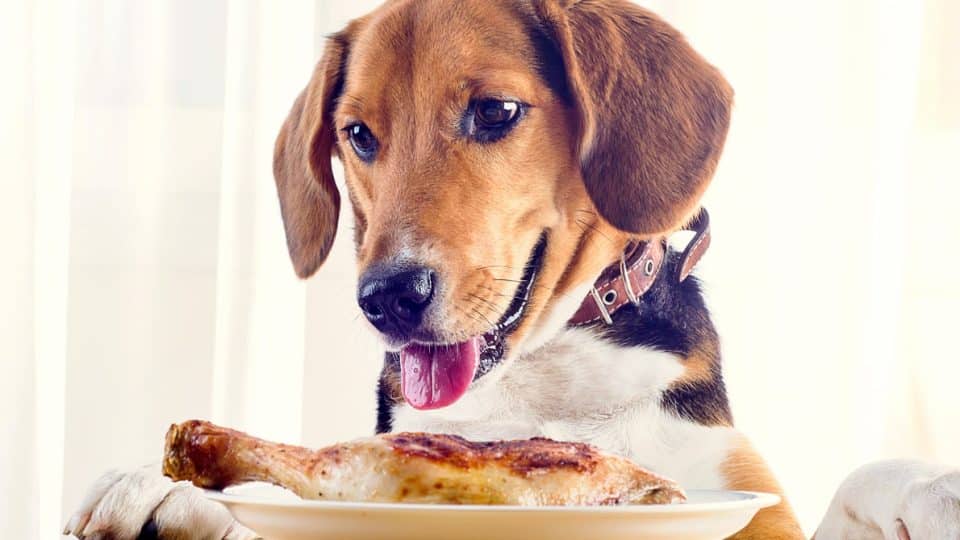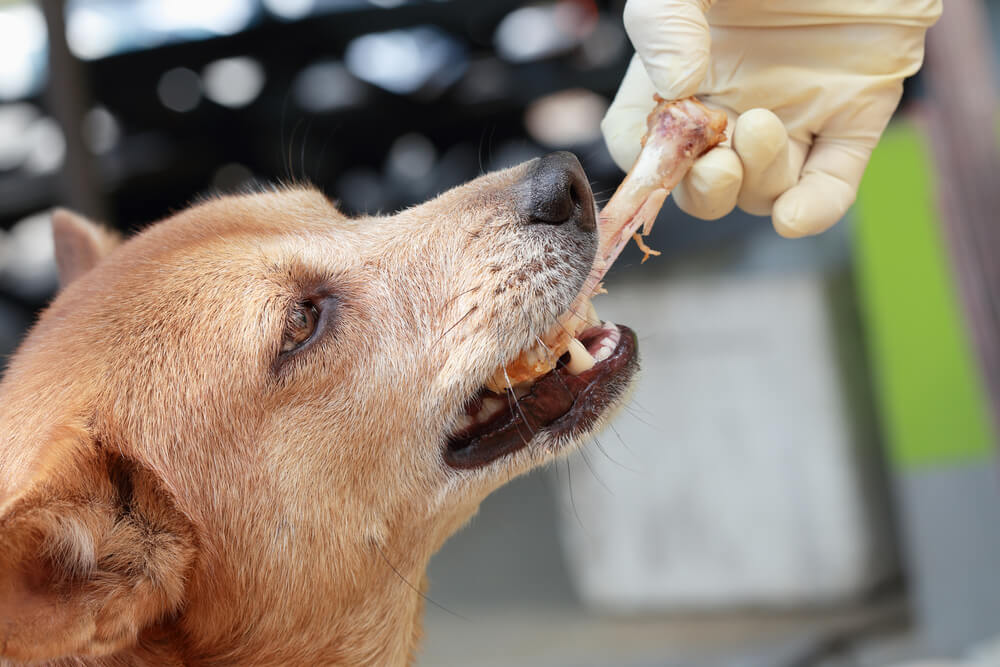You’re enjoying a delicious grilled chicken breast for dinner when your loyal companion gives you that unmistakable “please share” look. It’s a scene familiar to every dog owner, and it naturally leads to the question: can dogs eat chicken? As one of the most common ingredients in commercial dog foods, chicken is generally a safe and healthy protein source for most canines. However, how it’s prepared and served makes all the difference. This comprehensive guide will explore everything you need to know about feeding chicken to your dog, from its nutritional benefits to potential risks and proper serving methods.

Is Chicken Good for Dogs?
Yes, chicken is an excellent protein source for most dogs when properly prepared. It’s not just safe – it’s actually beneficial. The answer to “can dogs eat chicken” is overwhelmingly positive because of its nutritional profile:
Chicken is packed with high-quality protein that supports muscle development and maintenance. It’s also rich in essential nutrients like omega-6 fatty acids for healthy skin and coat, and contains important vitamins and minerals including vitamin B6, phosphorus, and selenium . These nutrients contribute to your dog’s overall health, energy levels, and immune function.
Many commercial dog foods feature chicken as a primary ingredient because it’s highly digestible for most dogs and provides complete nutrition. However, it’s important to note that while chicken is nutritious, it shouldn’t constitute your dog’s entire diet. Dogs need a balanced diet with various nutrients that no single protein source can provide alone. When used as part of a balanced diet or as an occasional treat, chicken can be a healthy addition to your dog’s meals.
What Types of Chicken Products Can Dogs Eat?
When considering chicken for dogs, preparation method is crucial. Here’s what you need to know about different chicken products:
Safe Options:
Unsafe/Dangerous Options:
When wondering can dogs eat chicken breast versus other parts, breast meat is typically leaner and safer than darker meats with more fat.

How Much Chicken Should a Dog Eat?
When adding chicken for dogs to eat, keep it as a supplement — not a full meal replacement unless a veterinarian prescribes a balanced homemade diet. Chicken should be treated as a supplement or treat, not a complete meal replacement.
As a general rule, treats (including chicken) should not make up more than 10% of your dog’s daily caloric intake. The appropriate amount depends on your dog’s size, weight, and activity level:
When introducing chicken to your dog’s diet, start with small amounts to ensure they tolerate it well. Can puppies eat chicken? Yes, but in even smaller quantities appropriate for their size and nutritional needs. Puppies have different nutritional requirements than adult dogs, so consult your veterinarian about proper portions for growing dogs.
Remember that chicken lacks certain nutrients dogs need for a balanced diet, so it should complement rather than replace their regular food.
Can Dogs Be Allergic to Chicken?
While chicken is a common protein in dog foods, some dogs can develop allergies to it. Chicken allergies are among the more common food allergies in dogs, though still relatively uncommon overall.
Symptoms of a chicken allergy may include:
If you notice these symptoms after feeding chicken, consult your veterinarian. They can help determine if chicken is the culprit through elimination diets or allergy testing. If your dog is allergic to chicken, there are plenty of alternative protein sources available, such as beef, fish, or lamb.
What if a Dog Eats Chicken Bones?
If your dog eats cooked chicken bones (or any dangerous bone), act quickly:
If your dog consumes chicken bones, contact your veterinarian immediately for guidance. Don’t induce vomiting unless specifically instructed to do so by a professional, as this could cause additional harm.

Conclusion
So, can dogs eat chicken? Yes — plain, boneless, cooked chicken is a nutritious, convenient protein option for most dogs when offered in moderation and as part of a balanced diet. Be cautious about raw feeding (bacterial risks), avoid cooked bones (splintering hazards), and watch for allergies or digestive upset. When in doubt about can dogs have chicken as part of your specific dog’s diet, consult your veterinarian for personalized advice. With proper preparation and portion control, chicken can be a safe and enjoyable treat for your canine companion.
FAQ
Can I give my dog cooked chicken?
Yes — cooked, unseasoned, boneless chicken is safe and commonly recommended. Remove skin and fat and avoid garlic, onion, and rich sauces. Use cooked chicken as a topper or short-term bland diet (boiled chicken + rice) only under vet guidance for long-term feeding.
Can I feed chicken to my dog daily?
You can feed small amounts of cooked chicken daily as a treat or topper, but it should not exceed about 10% of daily calories unless you’re using a veterinarian-formulated recipe. Rely on a complete commercial diet for daily nutritional needs.
What can I mix with chicken for my dog?
Mix cooked chicken with plain cooked brown rice for fiber, steamed carrots or green beans for vitamins, or a spoonful of plain yogurt (no xylitol) for probiotics. Avoid spices, sauces, or toxic veggies (like onions). This makes “chicken for dogs to eat” more nutritious and tasty!


